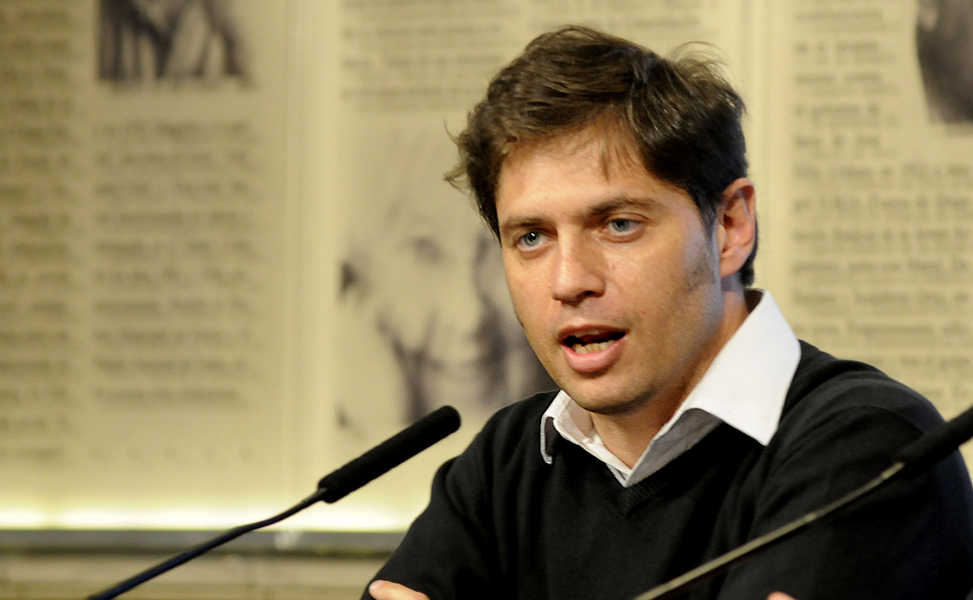The architect of the Argentine debacle advises the government of López Obrador
The arrival of Andres Manuel Lopez Obrador to the presidency of Mexico unleashed the worst fears of financial analysts, as the Tabasco politician is pursued by the shadow of populist leaders such as Hugo Chavez/Nicolas Maduro.
In the first months of his government, none of the most pessimistic predictions about the Mexican economy have been fulfilled. In fact, the peso has regained ground against the US dollar, inflation remains generally stable and foreign investment has not gone into disarray, on the contrary, it increased in the first quarter of the year and the tariff agreement on metals cleared the way for the ratification of the T-MEC.
Buuuuut… the alerts remain lit. Perhaps the most relevant is that which speaks of an authoritarian government capable of canceling an international airport that is extremely needed and under construction, which bets a great part of the economic growth on popular programs that will cost billions of pesos to the treasury, does not cease to cause animosity. Many are concerned about the ideological baggage of people who have approached the government to provide advice. The architect of the Argentine economic debacle, is one of those.
Mary Anastasia O’Grady of the Wall Street Journal, reported the presence in Mexico of Axel Kicillof, former minister of economy of Cristina Fernández de Kirchner, former president of Argentina. While working in Kirchner’s government, Kicillof was known for the hard left’s anti-market activism and fiery criticism that fostered envy and hatred among Argentines.
López Obrador has also been singled out for polarizing Mexican society. Today it is common to hear in the streets and in political debates the words “chairo” or “fifí“, to distinguish between followers of the president’s economic policy and opponents.
Axel Kicillof came to Mexico to give the lecture “How to confront neoliberalism and not die trying: Argentina, Mexico and the new conservative wave in Latin America” but he also met with senators from the Morena party and government officials, this verified by the Wall Street Journal.
There is no way to consider that meeting with people so close to López Obrador as a good sign. Red alerts light up for entrepreneurs, investors and Mexico’s main trading partners such as the U.S. and Canada, when the man responsible for the exponential increase in inflation in Argentina has been hired as an advisor to Mexican economists.
The red alerts returned once again when López Obrador presented his “National Development Plan” a few weeks ago, a document that is supposed to be a strategic quantitative and technical project, which became a subjective document of good intentions with no concrete courses of action, filled with populist phrases attractive to the people such as: “For the good of all, the poor come first” (Para el bien de todos, primero los pobres).
According to the Instituto Mexicano de Ejecutivos de Finanzas (IMEF), the measurements and forecasts of the cost of AMLO’s social programs range from 1.5 to 2.5% of the GDP and Kicillof’s visit does not go unnoticed by investors since it is well known that for more than a quarter of a century, Mexico has been working hard to modernize its economic model, and has achieved important advances up to the presidency of López Obrador, since there is fear of a similar situation as the one that happened in Argentina with the “Kirchernism” which could drag down the national economy back to the “Mexican Recession of 1995”.
Morena, López Obrador’s party, has among its ranks strong defenders and sympathizers of left-wing governments and there have been multiple signs of sympathy towards the regime of Nicolás Maduro, which the Mexican government, using the “Estrada Doctrine”, has refused to ignore as most Latin American states have done.
To this day, NO ONE with a little basic knowledge of economics and finance can see or say that Kicillof’s boundless populist legacy has been a success, except of course… the myopes, members of Mexico’s left. Kicillof was part of a disastrous Argentine economy with huge budget deficits, pressure on the Central Bank to print money and destroyed the country’s investment profile.
Axel Kicillof preached against private property rights, applauded the debt default and confiscation of foreign assets. National businessmen and labor force also received a bitter dose of populism when Cristina Fernández de Kirchner nationalized private pension accounts in Argentine banks.
Let’s remember that in a globalized world, markets are no strangers to political winks, no matter how faint they may be. In Argentina, the announcement that Cristina Fernández de Kirchner will contend in the next elections had an immediate response from the stock markets and investments.
If foreign investors had doubts about disbursing funds in Argentina until after the October elections, the ratification of Cristina Fernández de Kirchner’s candidacy will extend even further in time that agony of the arrival of investment, as described by Martín Dinatale in Infobae.
One way or the other, in Mexico, the businessmen, banks and the national and foreign investors have expressed their interest to continue participating in the Mexican economy, but the red alerts of uncertainty and doubts that surround López Obrador are lit with visits like that of Kicillof and are intensified with rumors of his hiring as an advisor, which if true … The future looks very bleak, since using the wise words of Mexican economics expert and political analyst Alejandra Cullen: “Axel Kicillof work, is remembered as the most exceptional case of destruction of wealth and generation of poverty in the history of Argentina”.
So I can’t help to think: Is Mexico next?
José E. Urioste Palomeque ([email protected]) for San Miguel Times.
Based in information from: The Wall Street Journal, Infobae, The London Times, Forbes, Bloomberg, Instituto Mexicano de Ejecutivos de Finanzas (IMEF).

